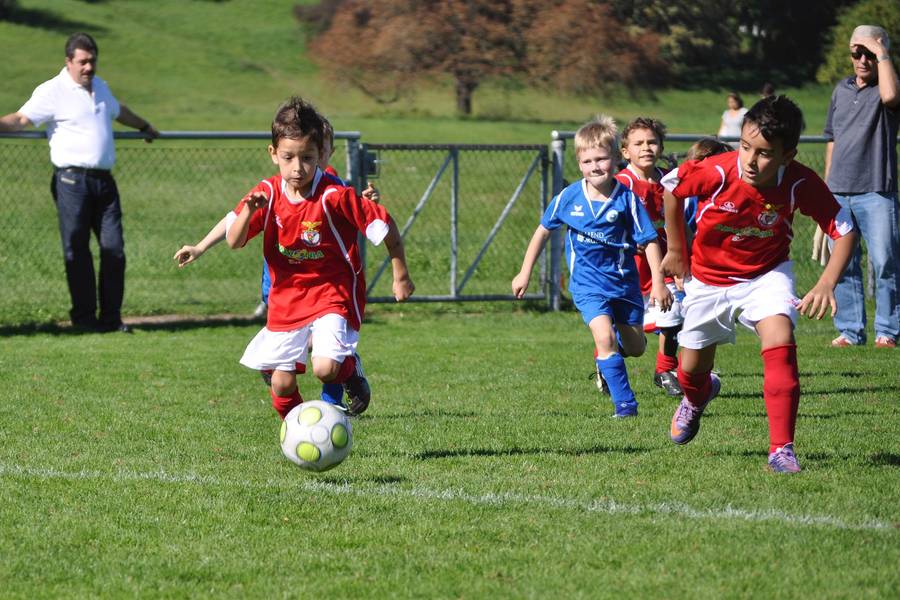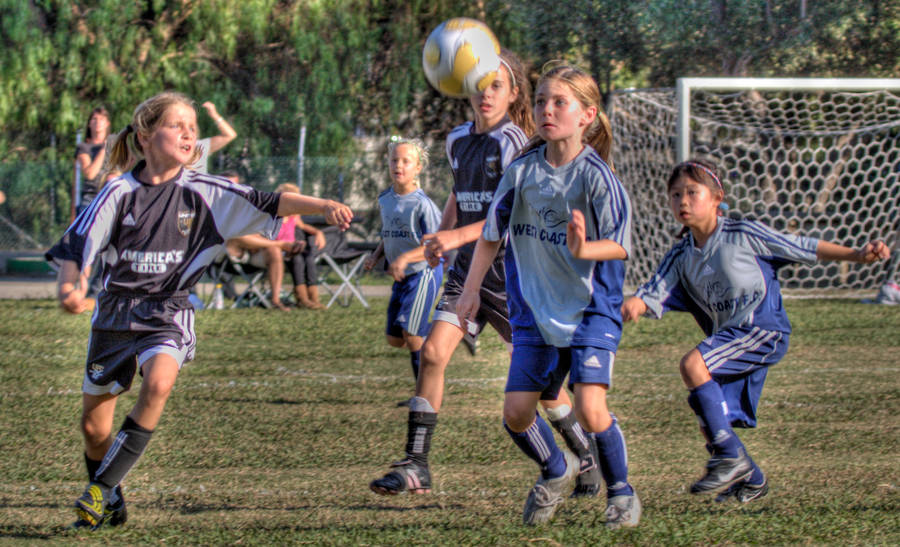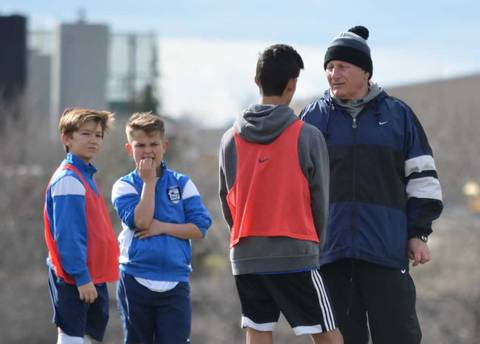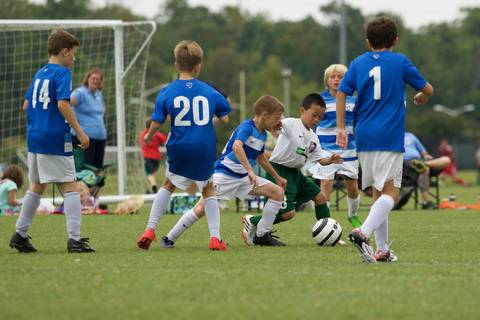Local football clubs across the UK are now facing complex regulatory issues as gambling laws tighten around sports sponsorships. These community teams, which frequently rely on various business partnerships to fund their operations. They must navigate the UK's increasingly strict gambling self-exclusion framework or face severe penalties.
The changing landscape influences how clubs obtain financial support and promote their sponsors. Some clubs are now looking into alternatives for UK self excluded punters, such as betting platforms that operate outside of the GamStop system. These sites provide faster payments and higher stake limits, but they raise concerns about responsible promotion in local communities.
How Self-Exclusion Works for UK Clubs
The UK Gambling Commission requires all licensed betting operators to provide ways for customers to block themselves from gambling services. This self-exclusion system aims to assist those who struggle with gambling-related challenges in gaining control of their habits.
GAMSTOP is the national online self-exclusion scheme that allows people to block themselves from all UK-licensed gambling websites for periods ranging from six months to five years. Individuals who register should not receive marketing materials or gain access to any gambling platforms within the scheme.
When grassroots football teams partner with betting companies, they have certain obligations. Clubs cannot intentionally target self-excluded individuals with promotions. They have to take reasonable precautions to ensure that their marketing activities are in accordance with these restrictions.
Recent data show a significant increase in GAMSTOP registrations, particularly among young adults under 25. This trend demonstrates why local sports clubs require proper guidance on gambling promotion in their communities.
Legal Requirements for Local Teams
The Gambling Commission rules state that operators must maintain accurate records of all self-excluded customers. They must train staff to spot and stop attempts by these individuals to gamble, and they must scrub these people from all marketing databases within 48 hours.
These regulations affect grassroots teams that display gambling logos, distribute promotional materials, or host betting company representatives at matches or events. Clubs that fail to respect these rules risk not just regulatory action but also damage to their standing in the community.
The UK Parliament continues to strengthen these protections through updated codes of practice. Teams that accept sponsorships from gambling firms now face stricter scrutiny of how they advertise these partnerships, especially when young people attend their events.
When Sponsorships Meet Community Responsibility
Gambling companies frequently fund amateur sports in Britain. This funding covers kits, equipment, and facility improvements that many clubs could not otherwise afford. The problem arises when clubs must balance financial support against social responsibilities.
Football clubs at all levels function as social hubs. Their practices, matches, and events attract people of all ages so this community role puts them in a position of trust, which may conflict with the promotion of gambling services.
Teams with gambling sponsors are required to implement self-exclusion policies. This includes employee training in responsible marketing and clear guidelines for the use of gambling logos. Youth teams and events involving minors need extra care to prevent unwarranted exposure to betting promotions.
GAMSTOP Partnerships with Football Clubs
Several professional football clubs participated in the first Self-Exclusion Awareness Day initiative, intended to raise awareness about blocking options for people experiencing difficulties with gambling. This campaign involved sharing information at matches, on social media, and through club communications.
This model can be applied to smaller-scale grassroots teams. Simple steps like displaying GAMSTOP information in clubhouses or including details in match programmes can assist vulnerable supporters. These low-cost actions demonstrate a genuine concern for community well-being.
The charity CARE supports these initiatives and collaborates with sports clubs to develop responsible approaches to gambling sponsorships. Their guidance assists smaller clubs in balancing financial requirements with ethical practices.
Practical Steps for Amateur Teams
Local football clubs should first understand if their sponsors comply with UK gambling laws. This means checking that betting partners hold proper licences and fully participate in the GAMSTOP scheme.
Club officials would benefit from basic training in recognising signs of problematic gambling behaviour among members and supporters. This knowledge enables them to provide a supportive environment for anyone experiencing gambling-related difficulties.
Teams that host events or tournaments with gambling company support should include information about self-exclusion options. This simple addition shows respect for those who face challenges with gambling while still acknowledging sponsor contributions.
The Wider Impact on Sport Funding
Stricter gambling laws are putting pressure on the UK's grassroots sports funding. Teams that previously relied on betting company sponsorships may need to look for new sources of revenue as these relationships become more limited.
Local businesses that are not tied to gambling may fill this void, but with smaller contributions. This financial reality explains why some clubs seek operators outside of the UK regulatory framework, despite the significant risks to their reputation and legal status.
Sports councils and football associations are currently working on alternative funding models for amateur teams. These include community ownership programs, local business consortiums, and improved grant access. The transition period remains difficult for many clubs with limited resources.
Education as Prevention
Some club calendars now include workshops on responsible gambling in addition to football skill sessions. These educational initiatives target players, staff, and supporters with age-appropriate messages about gambling risks and available resources.
Young players learn the importance of keeping sport and betting separate, while adult members learn about self-exclusion options. This proactive approach enables clubs to fulfil their community responsibilities without preaching or passing judgement.
Organisations that support individuals with gambling concerns provide free resources to sports clubs. These materials explain how to identify warning signs and where to direct people who require assistance. Many provide specific guidance on the self-exclusion process and its benefits.
Forward Planning for Club Officials
Committee members and trustees of grassroots teams should develop clear gambling sponsorship policies before financial pressures force them to make quick decisions. These policies must address not only current regulations, but also future changes as public concern over gambling-related harms grows.
Regular reviews of sponsorship agreements are necessary to guarantee adherence to changing regulations. What seemed to be acceptable practice a few years ago may now be considered unethical or illegal.
The most successful clubs communicate openly with members and supporters about their sponsorship choices. This transparency stimulates trust and demonstrates respect for community values, even when difficult financial decisions must be made.
Club constitutions and governance documents might need updates to reflect current attitudes toward gambling promotion. Such changes protect both the organization and its officials from accusations of irresponsible behavior or regulatory breaches.
Sports teams that take these issues seriously not only avoid legal problems but also strengthen their position as valued community assets. Their thoughtful approach to gambling sponsorships demonstrates a commitment to the welfare of members and supporters that extends beyond match results or league positions.

















